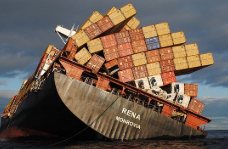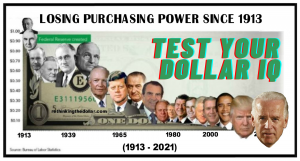Some fair-weather friends of free trade have been rethinking their positions in the face of supposed Chinese economic weaponization of pharmaceuticals. They are now embracing managed trade instead. Why?
Consider the following threat made by Tsinghua University’s economics professor Dr. Li Daokui: “We are at the mercy of others when it comes to computer chips, but we are the world’s largest exporter of raw materials for vitamins and antibiotics….Should we reduce the exports, the medical systems of some western countries will not run well.” He recently espoused this intimidation at the very important National People’s Conference in China.
As a result, US spokesmen are running scared. For example, according to Rosemary Gibson, a senior adviser on healthcare issues at the bioethics-focused Hastings Center, “Medicines can be used as a weapon of war against the United States.”
So, should we limit free trade with China to t-shirts, toys, swimming clogs, and other nonessentials, but set up protective tariffs against the importation from there of important products such as medicines (and also face masks, surgical gloves so as to become more self-sufficient)? This would certainly promote domestic production.
This argument is buttressed by the fact that China has been exporting gargantuan percentages of medicinal drugs used in the US, for example, ibuprofen (95 percent), hydrocortisone (91 percent), acetaminophen (70 percent), penicillin (45 percent), heparin (40 percent), according to Commerce Department data. Overall, China accounts for some 80 percent of the US supply of antibiotics.
No, this mercantilist argument must be rejected. Protectionism interferes with worldwide specialization and the division of labor that undergirds a growing and prosperous economy. Adam Smith said it pretty well a couple of years back: the wealth of nations emanates from economic freedom in general, and from free trade in particular.
We must realize that unrestricted international trade is only part of laissez-faire capitalism. If its other roots are cut off, then, yes, the case for tariffs looks stronger. In what way, then, has government interference with economic freedom rendered us more vulnerable to these Chinese threats?
For one thing, there are price gouging laws. If not for them, Americans and other non-Chinese entrepreneurs could rev up these industries in about five minutes. Ok, ok, that is an exaggeration, but only a slight one. If there were no limits on the prices that could be charged by domestic producers, it would be wildly profitable for them to step into the breach and undercut any Chinese threat of this sort. But there are reasons why this is not likely to occur. Some of them emanate from legislative enactments. However, others stem from the miseducation of the general public, in significant part due to state-supported education. When bread prices rise in some underdeveloped countries, riots ensue. Our electorate, unhappily, is not much more economically sophisticated than that.
Moreover, there is no reason to think that an unencumbered domestic industry would not have been able to anticipate just this eventuality given the statistics mentioned above. If there were no price gouging laws, or laws setting maxima on prices, our pharmaceutical firms would already have long anticipated this problem and have been ready to supplant foreign exporters of drugs, masks, or whatever else with which the Chinese might threaten us.
Instead, our government is forever whining about, threatening against, high drug prices. Our pharmaceutical industry is “fighting” the Chinese in this economic “war” with both its hands tied behind its back. Hey, I could beat heavyweight champion Tyson Fury in a boxing match if he were similarly handcuffed (and he weren’t allowed to hit me with his stomach).
The economic analysis of this issue is akin to the one correctly employed regarding the Standard Oil antitrust case of 1911. Rockefeller was indicted for engaging in predatory pricing. He was accused of lowering prices in one small area of the US way below the costs of production. He would suffer a temporary loss financed via his far-reaching oil refinery empire. But he would drive out of business all the local competitors. Then, Standard Oil would jack up the local prices, to better enable it to finance more predatory pricing elsewhere.
What is the error here? The economic illiteracy stems from ignoring a defensive technique that could be employed by the targets of this attack, and actually was, as a matter of fact. As soon as the predatory pricing starts, shut down. Even purchase artificially cheap oil from Rockefeller, for storage and later sale. Let the “predator” pile up losses. But keep a skeleton crew on board, so that when Standard Oil tries to recoup at astronomical prices, Bob’s your uncle and you’re almost immediately back in business.
In like manner, farseeing pharmaceutical firms in the US would have been ready and waiting to pounce if the Chinese pulled anything of this sort. And they still may do so. But the government has reduced their incentive to do any such thing what with their price gouging laws and threats over high drug prices.
by Walter Block via Mises









0 Comments